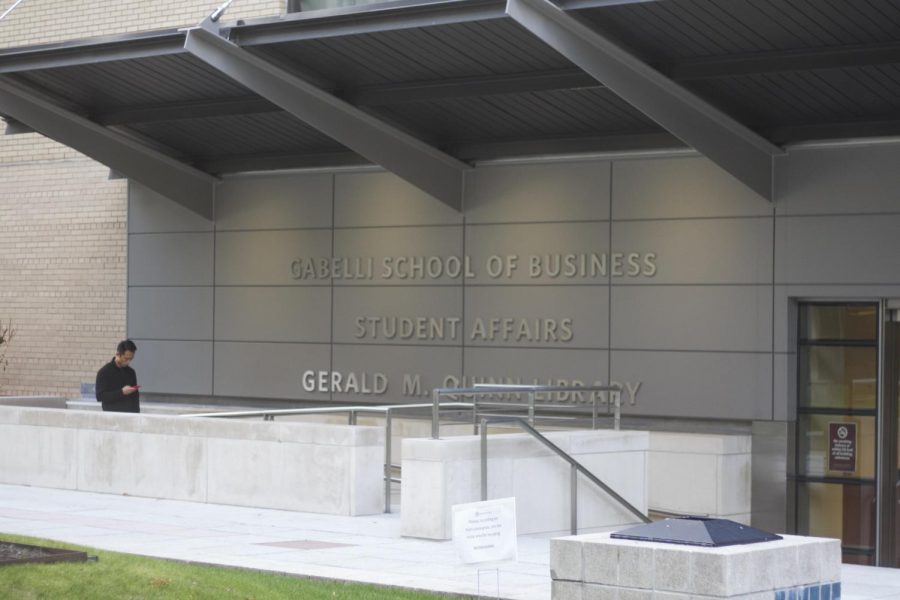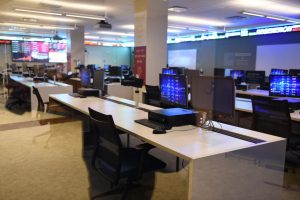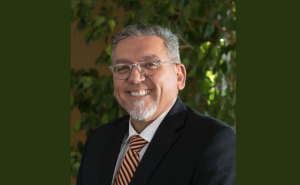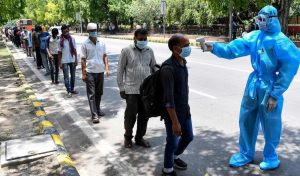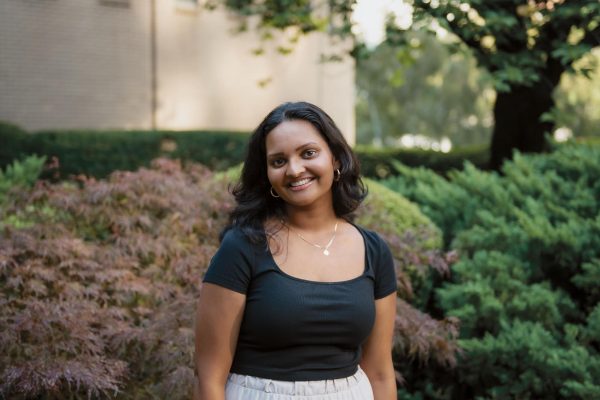Fordham Deans Clarify Incident of Academic Dishonesty at GSB
Discussions regarding future efforts to combat academic dishonesty arise as Gabelli students emphasize a stressful spring semester
ANDY BABCOCK
A class of students within the Gabelli School of Business were credibly caught cheating, leading to deans and faculty cracking down on the use of third-party sources for exams.
June 8, 2021
As finals of spring 2021 were taking place, Dennis C. Jacobs, provost and senior vice president for academic affairs, sent a community-wide email on May 12 detailing credible accusations of academic dishonesty in the Gabelli School of Business (GSB) by students enrolled in 19 parallel sections of a single course. The students utilized third-party platforms to collaborate and exchange information.
The course, Principles of Managerial Accounting 2223, had 650 test-takers, all of whom were required to retake the test on May 17, nine days after the original exam. Leadership within GSB launched an investigation and required the retake to include anti-cheating measures.
Donna Rapaccioli, dean of GSB, was made aware of the alleged academic dishonesty on Sunday, May 9, 2021.
She stated that the investigation into the cheating allegations entailed cooperation with the third-party platforms that were providing information regarding usage and activity during the administration of online exams.
The third-party platforms are online services that provide tutoring, textbooks and responses to student questions posted on the forum. Students from the class utilized the study site Chegg.com to share and solicit solutions to the exam.
Academic Deans Laura Auricchio of Fordham College at Lincoln Center (FCLC) and Maura Mast of Fordham College at Rose Hill (FCRH) attributed the increase in academic dishonesty to the escalation in the usage of third-party platforms during the COVID-19 pandemic. Auricchio cited a consensus amongst college administrators across the country that there have been increases in academic dishonesty.
Although this exam was open-note, the majority of academic dishonesty instances across the country occurred during closed-note exams, according to Auricchio and Mast.
“We have seen an uptick in academic integrity violations linked to the use of third-party online platforms.” Laura Auricchio, dean of FCLC
Patrick Ricciardi, Gabelli School of Business at Lincoln Center (GSBLC) ’24, clarified that the majority of his assessments were papers or open-note exams.
“I only had 2 exams this semester, and both professors were open about their exam format,” Ricciardi said. “The rest of my classes had exams as papers, and I was given ample time to complete them.”
Rapaccioli noted that previous instances of widespread academic dishonesty were not reported at GSB.
Auricchio and Mast echoed similar sentiments. “FCLC has never seen a case of academic dishonesty that was as extensive as this one. That said, we have seen an uptick in academic integrity violations linked to the use of third-party online platforms,” Auricchio said.
FCRH has also not experienced any academic integrity issues on the same scale as the GSB case, according to Mast. “We certainly have had difficulties with students using online platforms during exams,” she said. “It has intensified over the past year, both because of the shift to remote and because the sites are growing in popularity,” Mast said.
Ricciardi believes that the virtual learning environment facilitates cheating.
To prevent academic dishonesty in future assessments and exams, GSB will send out reminders on the definitions and consequences of academic dishonesty. In addition, exam content will be formatted differently, focus groups will be organized and discussions with the dean’s council will be utilized to gather student feedback and suggestions to combat cheating.
Ricciardi noted how the stressful and overwhelming academic workload this spring, coupled with the isolating nature of the academic year, may be contributing to the increase in academic dishonesty.
“This semester (and this entire year) has been very stressful for me,” he said. “In particular my own workload was very condensed, with lots of work a few weeks at a time followed by a period of very little work. The lack of social events also made de-stressing after long days much more difficult.”
Additionally, Ricciardi believes that the virtual learning environment facilitates cheating.
Raina Malik, GSBLC ’24, also emphasized the alienating and difficult environment she experienced at GSB the past semester.
“I believe doing school online is harder and more overwhelming,” she said. “Students tend to procrastinate more and lose motivation easily.”
The rise in academic dishonesty has led to discussions regarding the enforcement of anti-cheating software, but university-wide decisions are yet to be made, according to Auricchio and Mast.
“We have used limited approaches. Some faculty use the features in Blackboard that are designed to reduce cheating. We have also selectively used Respondus, a lockdown browser. These are the two options that the university supports,” said Mast.
“Depending on the implementation of anti-cheating software used and the characteristics of that software, I can absolutely see myself having privacy concerns. That said, I do not think this will be necessary on a university scale moving forward as we return to in-person learning environments.” Patrick Ricciardi, GSBLC ’24
Ricciardi mentioned that due to high school classes, he was familiar with an exam software program called Examsoft which, alongside in-person proctors, created an environment where cheating was less likely to occur. He noted that the degree of surveillance of the anti-cheating application could possibly raise privacy concerns.
“Depending on the implementation of anti-cheating software used and the characteristics of that software, I can absolutely see myself having privacy concerns. That said, I do not think this will be necessary on a university scale moving forward as we return to in-person learning environments,” he said.
In regard to short-term solutions, Auricchio and Mast are developing opportunities to prepare students to avoid academic dishonesty and have read posts from listservs that demonstrate how to create assessments that are less conducive to academic dishonesty.
“This is one example of how material can be more effectively taught rather than memorized, and results in students with applicable knowledge instead of just memorization skills.” Patrick Ricciardi
Ricciardi encouraged a reevaluation of teaching methods by shifting from formal, closed-note exams that promote memorization of large chunks of material toward the application of functional knowledge. He praised his philosophy professor’s final paper, a reflection of the class and the ethical theories discussed, as well as his accounting class’s final exam, which encouraged test-takers to check if they had conducted the accounting process correctly.
“Rather than forcing us to memorize material, we could focus on concepts and we knew where to look if we forgot something in the moment,” he said. “I think this is one example of how material can be more effectively taught rather than memorized, and results in students with applicable knowledge instead of just memorization skills.”
The deans expressed disappointment at the cheating incident, which they deemed a significant violation of academic integrity. They underscored that they would enforce numerous precautions to prevent such an event from occurring again. The GSB students communicated a different approach to the situation. They noted the exhaustion and strain they experienced during the academic school year and suggested that exam formats move from those that measure memorization techniques to assessments that improve note-taking skills or the application of concepts.

